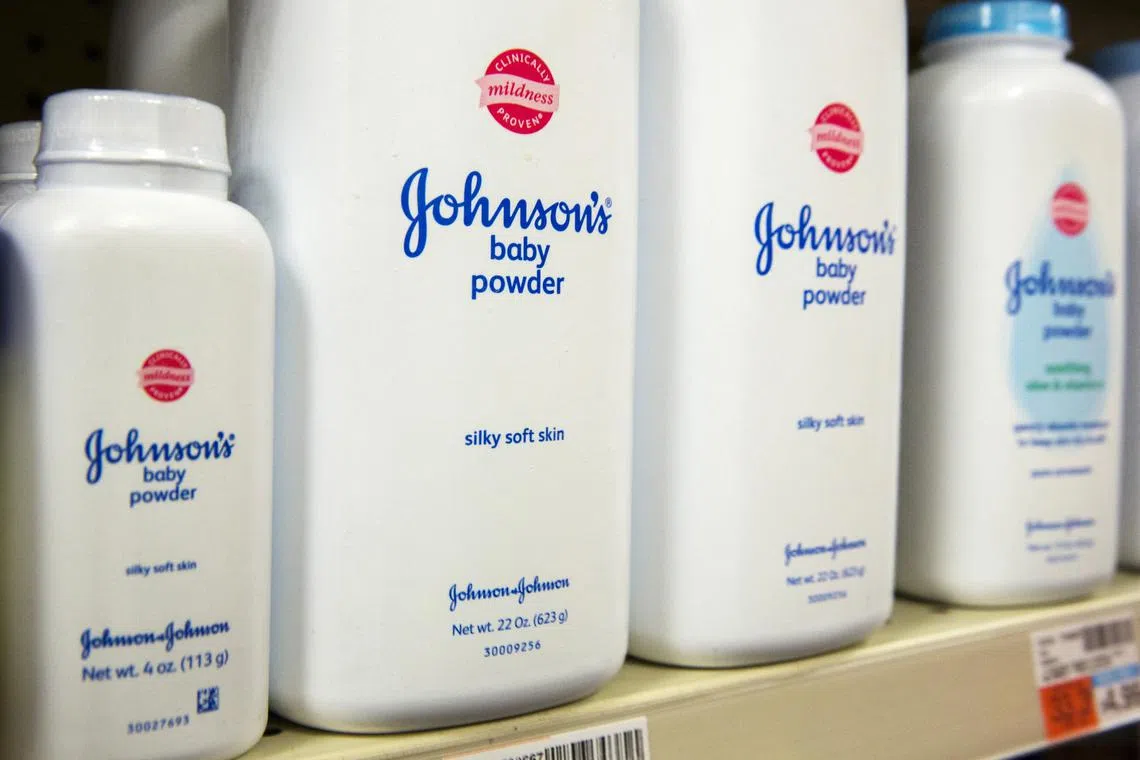Talcum powder cancer claims: Johnson & Johnson agrees to pay out $11.8b in settlement
Sign up now: Get ST's newsletters delivered to your inbox

The proposed settlement would be paid out over 25 years through a subsidiary.
PHOTO: REUTERS
NEW YORK – Johnson & Johnson (J&J) said on Tuesday that it had agreed to pay US$8.9 billion (S$11.8 billion) to tens of thousands of people who claimed the company’s talcum powder products caused cancer,
The proposed settlement, which lawyers for the plaintiffs called a “significant victory”, would be paid out over 25 years through a subsidiary, J&J said in a securities filing.
The company said the settlement plan was not an admission of wrongdoing.
If a bankruptcy court approves it, the agreement will resolve all current and future claims involving J&J products that contain talc, such as baby powder, the company said.
A group of lawyers who represent nearly 70,000 plaintiffs described the deal as a “landmark” and a “significant victory for the tens of thousands of women suffering from gynaecological cancers caused by J&J’s talc-based products”.
In addition to the deal, the court would have to accept a new bankruptcy filing by a J&J subsidiary, LTL Management. J&J created LTL in a manoeuvre to shield itself from the talc litigation, but an earlier bankruptcy filing by the unit was challenged by the plaintiffs and dismissed in 2023 by a United States appeals court.
LTL’s first bankruptcy filing had set aside US$2 billion for payouts to plaintiffs, many of whom claimed that the talc used in J&J’s baby powder was contaminated with asbestos and caused illnesses such as ovarian cancer and mesothelioma.
With the new filing, J&J said it would set aside an additional US$6.9 billion to cover the payouts.
Mr Erik Haas, the company’s worldwide vice-president of litigation, said on Tuesday that the plaintiffs’ claims “are specious and lack scientific merit”, but would have taken decades and been extremely costly to resolve.
J&J’s executives knew for decades about the risk of asbestos exposure linked to its talc products, including its famous baby powder.
After years of pushing back on researchers and scientists, the company began facing a flood of lawsuits in recent years, along with government investigations and lawmaker inquiries.
In 2020, the company said it would discontinue sales of its talc-based baby powder in the US. It plans to stop selling the product globally in 2023, offering a cornstarch version instead. NYTIMES


